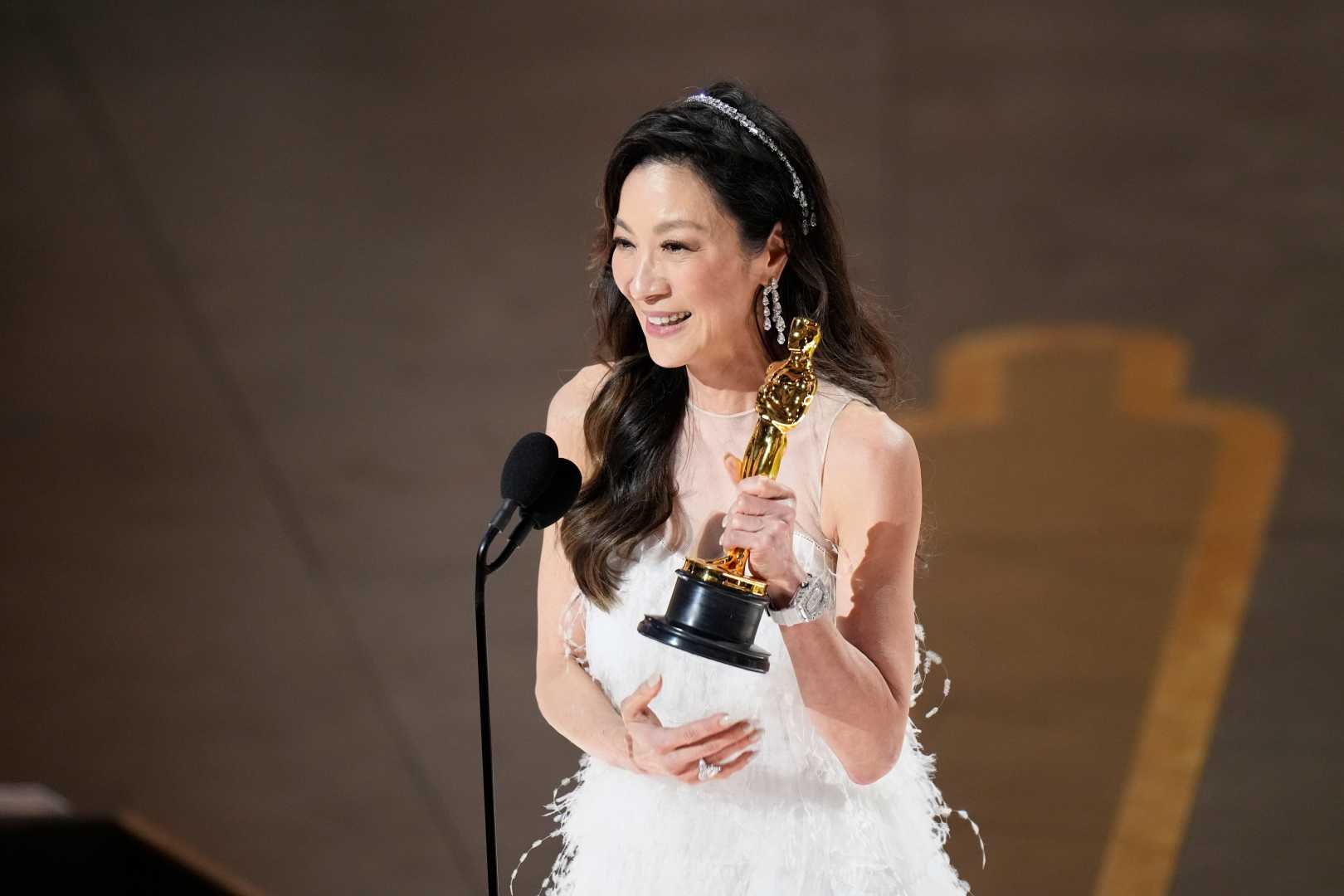Entertainment
Michelle Yeoh’s Journey from Bond Girl to Oscar Winner

Following the 1995 release of “GoldenEye,” renowned actor Pierce Brosnan reprised his iconic role as James Bond in the 1997 film “Tomorrow Never Dies.” This installment saw Bond collaborating with a Chinese agent, Wai Lin, portrayed by celebrated Malaysian actress Michelle Yeoh. Yeoh’s performance marked a significant departure from the traditional portrayal of “Bond girls,” as her character not only rescued 007 but also resisted his romantic advances.
Michelle Yeoh, at the age of 62, has since been recognized as the first Asian woman to win the Academy Award for Best Actress for her role in “Everything Everywhere All At Once” in the previous year. Reflecting on her early Hollywood experiences, Yeoh shared insights into the challenges she faced following her impactful turn in the Bond franchise.
In an interview, Yeoh commented on the shift she brought to the Bond series. “The first movie I did after I came to America was ‘Tomorrow Never Dies’ with Pierce Brosnan,” she explained. “James Bond at that point had only been known as macho, and the girls were just the ones with cutesy names.” In redefining the “Bond girl” stereotype, Yeoh’s character captured the attention of both audiences and Hollywood executives.
Despite her success, Yeoh recounted the obstacles she encountered in the film industry, noting the limited and often typecast roles available to Asian actresses at the time. “At that point, people in the industry couldn’t really tell the difference between whether I was Chinese or Japanese or Korean or if I even spoke English,” she stated. “They would talk very loudly and very slow. I didn’t work for almost two years, until ‘Crouching Tiger, Hidden Dragon‘ simply because I could not agree with the stereotypical roles that were put forward to me.”
Yeoh went on to receive her first nomination for Best Actress at the BAFTA Awards for her role in “Crouching Tiger, Hidden Dragon,” a recognition that further solidified her status as a formidable talent in the industry. Her Oscar victory for “Everything Everywhere All At Once” continues to underscore her enduring impact on both Asian representation and female empowerment in Hollywood.












